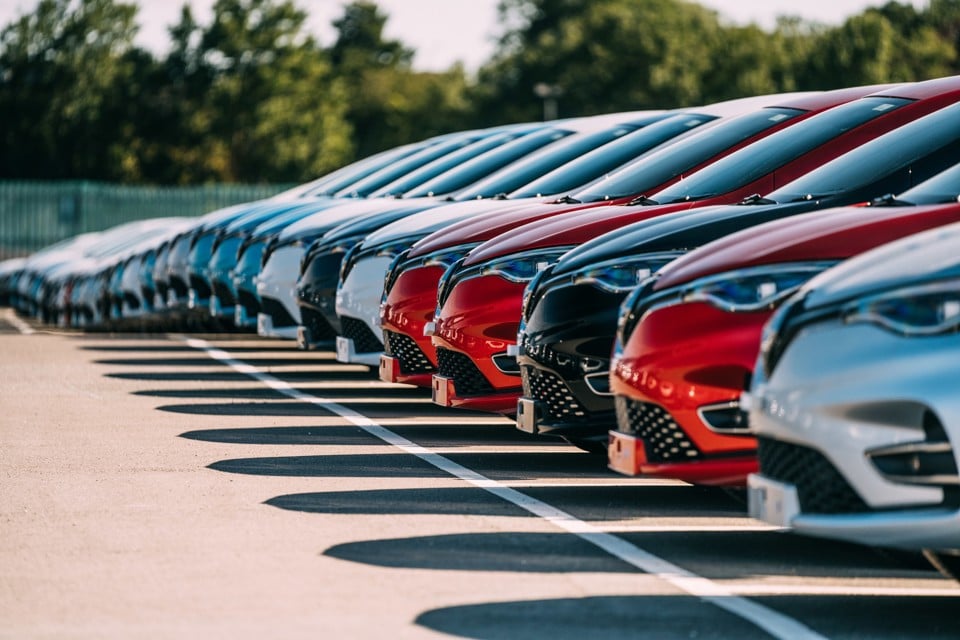The Government has admitted in a new report that tax revenues are at significant risk from the switch to electric vehicles (EVs).
Tax receipts, which are wholly dependent on individuals’ and businesses’ consumption of fossil fuels or emission of greenhouse gases, equated to £37 billion in 2019-20 or just over 4% of total revenues.
However, much of this revenue is likely to be “eroded during the transition to a net zero economy”, with the tax take “wholly or partially at risk”, it says.
The warning, published in HM Treasury’s interim Net Zero Review, which aims to inform the next steps in the UK’s transition to net zero by 2050, comes after the Government announced it would ban the sale of new diesel and petrol cars and vans from 2030.
The report says that the UK still needs to act to maintain the “sustainability” of public finances as it achieves net zero.
“This is to ensure that Government can continue to fund other public service priorities and respond to future economic shocks,” it says.
“The importance of maintaining fiscal space to be able to respond to shocks has been underscored during recent months by the response to the Covid-19 pandemic.”
It continues: “The transition to net zero will coincide with a period during which the OBR (Office for Budget Responsibility) expects greater pressure on the public finances due to demographic trends.
“Given the risks facing tax receipts over the transition period, the Government will need to make decisions over time and in light of economic conditions about whether or not to adjust taxes in order to maintain revenue in a low-carbon economy, or to balance any loss of tax revenue with reductions in spending.
“Carefully considering impacts such as these is crucial for ensuring sustainable public finances into the future.”
Kemi Badenoch, the Exchequer Secretary to the Treasury, says that the Government is determined to achieve a “cleaner, green future” and cutting our emissions to net zero by 2050 is crucial to this.
“We are already making good progress and have set out billions of pounds in green investment, including decarbonisation and greener homes, electric vehicle charging infrastructure, walking and cycling infrastructure, flood defences and backing enough offshore wind to power every UK home by 2030,” she said.
“This valuable piece of analysis will help inform our next steps as we work to build back better and greener.”
The Chancellor of the Exchequer, Rishi Sunak, has announced that the Government will publish the Budget on March 3, 2021.
The National Infrastructure Strategy, launched to coincide with the recent Spending Review, emphasised the need for motoring tax revenues to ‘keep pace’ with the uptake of EVs. It did not, however, mention road pricing as a potential alternative to the current regime.
Gerry Keaney, chief executive of the British Vehicle Rental and Leasing Association (BVRLA) said any changes need to be fair to the fleet industry.
He recognised that the Government’s future motoring tax strategy must strike a “fine balance” in maintaining vital revenues and encouraging people into newer and cleaner vehicles.
But he stressed: “The Government must avoid placing a crushing tax burden on businesses and individuals that are unable to upgrade their cars, vans or trucks and are already struggling to cope with the economic implications of Covid-19 pandemic and EU exit.”
Jon Lawes, managing director of Hitachi Capital Vehicle Solutions, added: “Whilst the industry is definitely moving in the right direction ahead of the 2030 ban on petrol and diesel vehicles, concerns over the charging infrastructure remain the biggest challenge and the mass adoption of EVs relies on confidence.
“Initiatives such as our partnership with Gridserve, which recently launched the UK’s first Electric Forecourt, and Optimise Prime, the world’s biggest trial of commercial EVs, both play a vital role in instilling confidence to make the switch to electric, but more needs to be done and quickly.
"Government and our industry must continue to work together to develop a robust and reliable charging network that meets our future demands.”
The interim report contains initial analysis, rather than policy recommendations, which will guide further work ahead of the publication of the review’s final report next year.
The final report will build on this analysis, looking at how the Government can encourage innovation, technological development and investment in green technologies the UK; address risks to competitiveness; and manage implications of the transition for households.
It also aims to complement the Government’s Net Zero Strategy to be published next year, as well as sectoral decarbonisation strategies.
The Government says it will set out its Transport Decarbonisation Plan in due course.
Dr Nina Skorupska, chief executive of the Association for Renewable Energy and Clean Technology (REA), says it is vital that people understand the benefits that the UK’s path to Net Zero will have for the economy.
"We, therefore, welcome HM Treasury’s work in this area, as well as its recognition that the transition is essential to the UK’s long-term prosperity," she said.
"It is also important to note the disclosure of the links between tax revenue and sectors linked to fossil fuel usage which can and will change."
She continued: “Short-term changes to tax revenues must not stop the UK’s energy transition and we must look to the social, economic and environmental benefits of such a change."
Read crucial guidance for fleets on the adoption of EVs in the December edition of Fleet News.























Login to comment
Comments
No comments have been made yet.